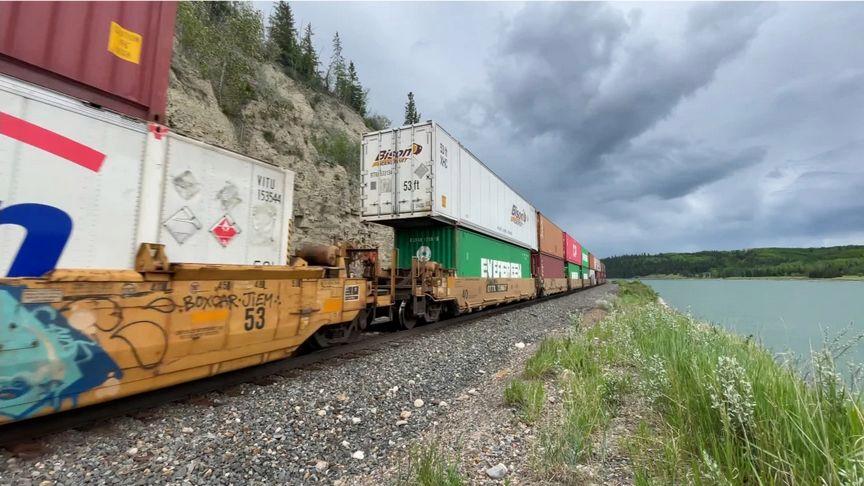
Two major freight railways in Canada have been completely shut down due to contract disputes with workers. If trains cannot resume operation as soon as possible, this stalemate could cause significant economic losses to businesses and consumers in Canada and the United States.
Firstly, due to contract disputes with workers, two major freight railways in Canada have been completely shut down. If trains cannot resume operation as soon as possible, this stalemate could result in significant economic losses for businesses and consumers in Canada and the United States. Both Canadian National Railway and Canadian Railway have suspended their employees after the deadline of 12:01 am Eastern Time on Thursday, but have not reached a new agreement with the Canadian Truck Drivers Union, which represents approximately 10000 engineers, train conductors, and dispatchers.
Secondly, all railway transportation in Canada and all goods crossing the US border have been suspended, but trains will continue to operate in the US and Mexico. According to the US Department of Transportation, billions of dollars worth of goods are transported by rail between Canada and the United States every month. The President and CEO of the American Manufacturers Association stated in a statement that if railway transportation comes to a halt, businesses and households across the country will be affected, and manufacturing workers, their communities, and consumers of various products will be trapped due to supply chain disruptions.
On the other hand, other impacts include over 30000 commuters in Vancouver, Toronto, and Montreal having to seek new ways of commuting as their trains will be unable to operate on the tracks during railway closures. Business groups have urged the government to intervene, but the prime minister has refused to force both sides to arbitrate.
The union stated that the Canadian National Railway has been in negotiations with the truck drivers' union for nine months, while the Canadian trucking company has attempted to negotiate with the truck drivers' union for a year to reach an agreement. Many companies in various industries rely on railways to transport raw materials and finished products, so without regular railway services, these companies may have to reduce or even close down. That's why the US government prevented railway workers from going on strike two years ago and forced them to accept contracts.
In addition, although they are concerned about the tight schedule and lack of paid sick leave. Canadian railways used to temporarily shut down during contract negotiations, with the most recent one being in March 2022. Due to these closures, the impact on businesses will be magnified. Both companies have gradually ceased operations since the contract deadline last week. The transportation of hazardous chemicals and perishable goods was initially halted to prevent them from being stranded on the railway tracks.
Agreements were reached with several of the 13 unions, which cover 25% of employees, before national negotiations began later this year. If the new five-year contract is approved, it will provide a 17.5% salary increase, better benefits, and vacation time. Similar concerns about busy work schedules and a lack of paid sick leave in terms of quality of life almost led to the US railway strike two years ago, until Congress and President Biden intervened to force unions to accept the agreement.
Overall, as contract negotiations in Canada reached their final stages, the largest railway company in the United States broke the long-standing practice of joint negotiations with unions in the freight rail industry. Continuing to work hard at the negotiating table is in the best interests of both parties. Millions of Canadians, workers, farmers, and businesses across the country are counting on both sides to work towards a solution. Without access to railway services, manufacturing companies may have to reduce or even stop production, and ports and grain elevators will soon be blocked by goods waiting to be transported. If the dispute continues for several weeks, water treatment plants across Canada may have to be busy without new chlorine supply.

Recently, a series of corporate borrower fraud cases have been exposed on Wall Street, implicating institutions such as Jefferies, First Brands, Zions Bank, and Western Union Bank, with massive loan losses triggering market panic.
Recently, a series of corporate borrower fraud cases have b…
According to a report citing the Messenger Post of Papua Ne…
In the latest meeting minutes released by the Bank of Japan…
November 4th witnessed a "day of terror" in the cryptocurre…
On October 26th local time, Tesla's CEO Elon Musk announced…
When the US National Nuclear Security Agency fell into an "…